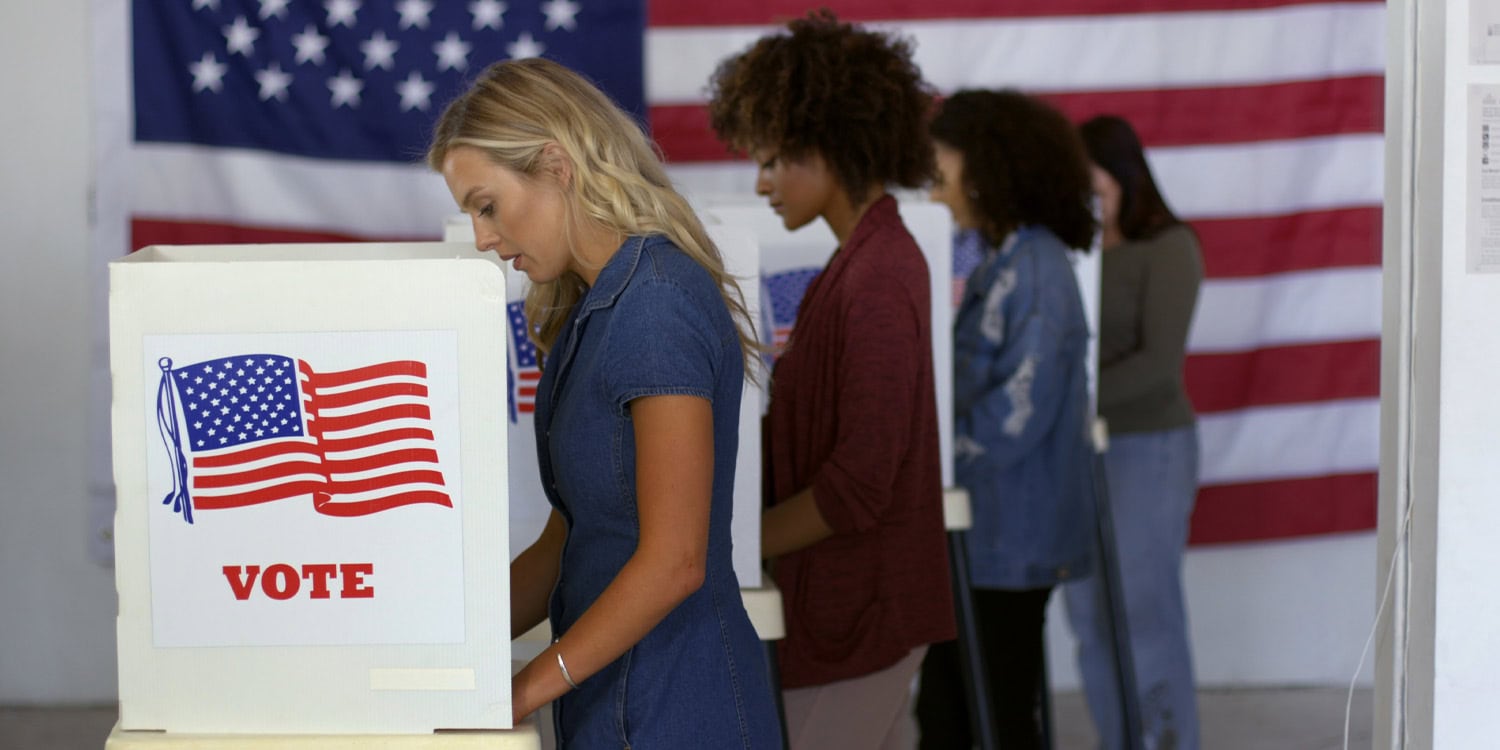When it comes to elections, the idea that more choices lead to better outcomes may not always hold true. A recent study conducted by Spencer Goidel at Auburn University explores the phenomenon of “choice overload” in elections and how it can affect voter behavior. The study suggests that the abundance of candidates in elections leads to higher rates of ballot rolloff, a situation where voters participate in an election but abstain from casting votes for some races on the ballot.
The findings have been published in American Politics Research.
Political scientists have long been interested in how the structure of elections—such as the number of candidates or the type of primary—affects voter participation. Goidel’s research specifically focuses on Louisiana’s unique “jungle primary” system, which is a majority-vote, nonpartisan primary held on Election Day. This system can result in a crowded field of candidates, particularly from the same political party, and Goidel wanted to investigate whether this abundance of choice could lead to voter disengagement.
The study draws on theories from consumer psychology, particularly the concept of “choice overload,” which suggests that when individuals are faced with too many similar options, they can become overwhelmed and either opt out of making a decision or make a choice that they later regret. The study aimed to determine whether this concept applies to voting behavior, particularly in elections with many candidates.
“Following the 2016 Republican presidential primaries, I heard the refrain that there were no good options, and it absolutely baffled me. There were more than a dozen experienced candidates seeking the nomination on the Republican side in 2016,” explained Goidel, an assistant professor of political science at Auburn University.
“Then, the same thing occurred among Democrats in 2020. This got me thinking about how large candidate fields would affect voters. With that many options, it seemed like people started ‘cancelling’ candidates for the smallest reasons, and they were hesitant to strongly back any one candidate. At the simplest level, I figured large candidate fields would cause voters to abstain or roll off at the ballot box.”
To explore this, Goidel leveraged a natural experiment created by changes to Louisiana’s electoral rules due to Supreme Court decisions, which led to the abandonment and later readoption of the jungle primary system. This unique context allowed the researcher to compare voter behavior under different electoral systems within the same state.
“The case of the Louisiana jungle primary seemed natural to me, because in Louisiana voters would be voting in these elections with many candidates at the same time they went to choose between two presidential candidates — giving a good baseline for ‘normal’ turnout to measure roll off against,” Goidel explained.
For his aggregate-level analysis, Goidel used a difference-in-differences design, comparing ballot rolloff rates in Louisiana to those in Mississippi, a neighboring state with a different electoral system. He also employed a generalized synthetic control model, constructing control counties using data from Arkansas, Mississippi, and Texas to further validate the results. These models allowed Goidel to isolate the effect of the jungle primary on ballot rolloff rates at the county level.
In addition to the aggregate analysis, Goidel conducted an individual-level analysis using survey data from Louisiana respondents to the Cooperative Election Study. This part of the study examined whether voters in congressional districts with more candidates were more likely to abstain from voting in House elections. By combining these two approaches, Goidel was able to assess the impact of candidate abundance on voter behavior from both a broad, population-level perspective and a more detailed, individual-level perspective.
The findings from both analyses were consistent and supported the hypothesis that an abundance of candidates in an election increases the likelihood of ballot rolloff. At the aggregate level, Goidel found that the reintroduction of the jungle primary in Louisiana led to a 5.7 to 7.1 percent increase in ballot rolloff compared to the period when the jungle primary was not in use. This means that when voters were presented with more candidates on the ballot, a significant portion of them chose not to cast a vote in the House elections, despite having turned out to vote.
The individual-level analysis further reinforced these findings. The study showed that for each additional candidate in a House election, there was a 1 percent increase in the likelihood that a voter would roll off. The probability of a voter abstaining from a House election increased significantly as the number of candidates grew, particularly when the number exceeded two. For example, in elections with as many as twelve candidates, the likelihood of ballot rolloff jumped from 2.9 percent to 19.1 percent. This suggests that even a moderate increase in the number of candidates can lead to a substantial rise in voter disengagement.
“Our default response to dissatisfaction in politics is to reform our institutions in a way that increases choice for the voters,” Goidel told PsyPost. “I’d caution that democratizing the process does not always produce better results. Democratizing the primary process could unintentionally burden and demobilize parts of the electorate.”
While the study provides insights into the impact of candidate abundance on voter behavior, it is important to consider its limitations. One key limitation is that the study focuses specifically on Louisiana and its unique jungle primary system. While the findings are relevant to other states with similar electoral systems, such as California and Alaska, the generalizability of the results to other contexts may be limited.
“There’s a decline in ballot rolloff in Louisiana in 2020 when absentee voting was at an all-time high,” Goidel noted. “Of course we can’t know what caused this decline, but I think it makes sense that voting at home with internet access and time would be less burdensome. In a state like Washington, where most voters vote by mail, it’s reasonable to suspect that the negative effects of overload would be offset by this more deliberative voting method.”
“A survey experiment that I conducted shows that large candidate fields do make voters feel overwhelmed. That paper is in the pipeline, and I plan on exploring how the top-two or top-four primaries adopted in other states have affected voters.”
The study, “More Candidates and Fewer Voters: How an Abundance of Choice Demobilizes the Electorate,” was published August 13, 2024.




